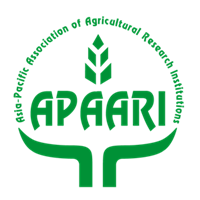Agricultural Innovation in Latin America and the Caribbean: Institutional Scenarios and Mechanisms
Agriculture and food supply face a repositioning in the context of challenges associated with the Millennium Development Goals. From a development perspective it is of central importance to identify the role that the sector should perform in the fight against poverty and in a world that is increasingly urbanized. In this context, the general objective of the document is to contribute to the discussion of the current situation of the National Institutes of Agricultural Research (INIA’s - Institutos Nacionales de Investigación Agropecuaria) in Latin America in the framework of the National Innovation Systems and the international scenario. Specifically,the objectives are: i) to characterize the challenges they face and the scientific basis on which
the INIA’s work and function (sections I.2 and I.3); ii) to analyze the evolution and role of the INIA’s in the Region (section I.4); iii) to propose changes that could be put in place to take advantage of opportunities, deal with challenges and be part of the new processes of innovation that are developing (sections I.5 and I.6); iv) to identify specific interventions required to put into practice the required transformations (sections I.7 and I.8); v) to contribute to a better understanding, design and management of innovation platforms for the regional agricultural sector ( section II).
Related Resources
Towards optimal coordination of the Chilean Agricultural Innovation System: Design for a MINAGRI Agricultural Innovation Coordination Unit
This is a study for developing long-term strategy for Chilean Innovation System

Report on Prioritization of Demand-driven Agricultural Research for Development in Bangladesh
International Food Policy Research Institute (IFPRI) partnered with the Asia-Pacific Association of Agricultural Research Institutions (APAARI) in 2011 to conduct a series of policy dialogues on the prioritization of demand-driven agricultural research for development in South Asia. Dialogues were conducted...
Scientists, Industry and Farmers Marketing Sorghun in Andhra Pradesh
The Andhra Pradesh sorghum coalition illustrates the valued added by working in coalition. By combining different perspectives to give rise to new, synthesised ideas, the member organisations worked at a faster pace and achieved their objectives more successfully and sustainably...
Bringing the invisible into perspective
This reference document describes a comprehensive approach for planning, monitoring and evaluation of capacity and the results of capacity development processes. This capacity framework used centres around 5 capabilities (‘5Cs’) that together contribute to an organisation’s ability to create social...
Gender Equality in Rural Advisory Services
This brief explains the concept of gender equality in advisory services and discusses the opportunities that gender equality in rural advisory services can create for global and local food production, women’s economic empowerment, household food security, and nutrition. It summarises...


